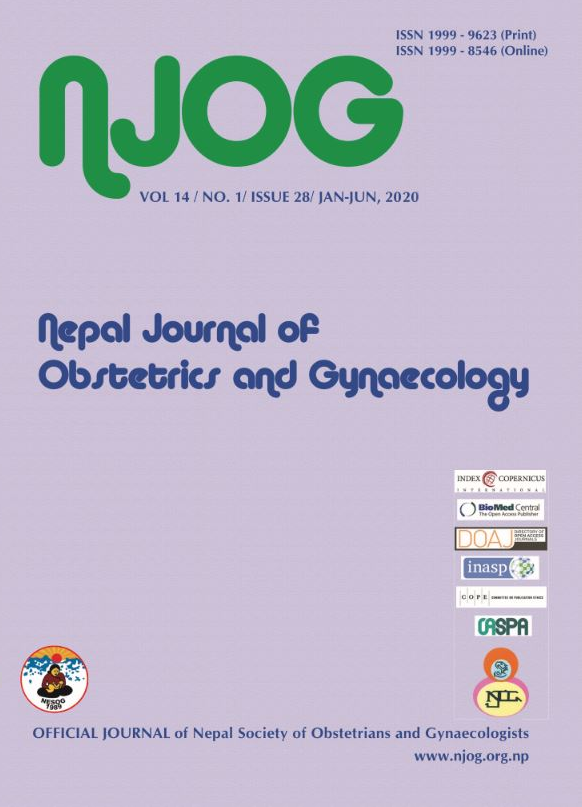Outcome of Trans-obturator Tape Procedure in the treatment of Stress Urinary Incontinence at Kathmandu Model Hospital
Abstract
Aims: To evaluate the improvement in the quality of life of women with stress urinary incontinence who were treated with trans-obturator tape procedure.
Methods: This is a cross-sectional study of treatment of stress urinary incontinence using trans-obturator tape at Kathmandu Model Hospital from February 2018 to December 2019. The outcome of the procedure in terms of improvement in quality of life and surgical complications were assessed.
Results: Out of 16 cases of stress urinary incontinence half of them were post-menopausal. One each had intra-operative bladder injury, urinary retention and urinary tract infection; 14 cases improved completely by a week, one had some improvement and one didn’t improve. At six months follow-up one case had no improvement and one developed urge incontinence.
Conclusions: Trans-obturator tape has been found a good procedure for the treatment of stress urinary incontinence in our setting and hence led to high rate of improvement in quality of life with minimal and minor complications.
Key words: Complications; quality of life; stress urinary incontinence; trans-obturator tape
Downloads
Downloads
Published
How to Cite
Issue
Section
License
Copyright on any research article in the Nepal Journal of Obstetrics and Gynaecology is retained by the author(s).
The authors grant the Nepal Journal of Obstetrics and Gynaecology a license to publish the article and identify itself as the original publisher.
Articles in the Nepal Journal of Obstetrics and Gynaecology are Open Access articles published under the Creative Commons CC BY-NC License (https://creativecommons.org/licenses/by-nc/4.0/)
This license permits use, distribution and reproduction in any medium, provided the original work is properly cited, and it is not used for commercial purposes.



